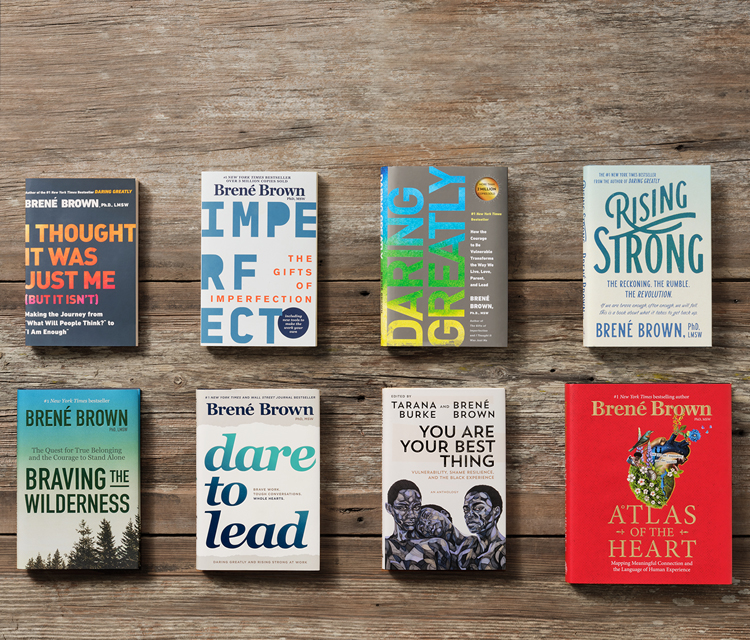My team and I receive emails every week from people asking “If I’m new to your work, where do I start? Which book do I read first?” I offer brief overviews of my work at the start of Daring Greatly and Rising Strong, but reading The Gifts is always a good place to start. The 10th-anniversary hardback edition of The Gifts and the new audiobook (imperfectly read by me) launched on September 8, 2020.
Dare to Lead is putting Daring Greatly and Rising Strong into practice at work. It’s tactical, actionable, and great for team/group/org reads. There are free downloadable workbooks and tools on our Dare to Lead Hub.
Braving the Wilderness is a book about belonging in a polarized culture and it stands on its own. You can read it anywhere in the progression.
I Thought It Was Just Me was my first book and is a deep dive into women and shame. If you’re looking for detailed information on women and shame, I still recommend starting with The Gifts, then moving to I Thought It Was Just Me.
If you’re looking primarily for a book on courage and vulnerability, or you want something that talks about applying “the work” at work, start with Daring Greatly.
If you’re looking for a “I was brave and got my heart broken or my ass kicked” book—well, first, thanks for being brave. Courage is contagious even when there are hard endings. Second, I would start with Daring Greatly then get to Rising Strong ASAP. Daring Greatly will remind you that your vulnerability was courage, and Rising Strong will give you some ideas about how to deal with all of the stories we make up and keep on a loop when we’re dusting ourselves off.
Hope this helps and thanks for your interest!
(Note from future Brené here: In November 2021, Atlas of the Heart: Mapping Meaningful Connection and the Language of Human Experience joined the fold. It’s a journey through 87 emotions and experiences that define what it means to be human—and its goal is to give us all the language and tools we need to build meaningful connection in our lives. So often, when we feel lost or adrift in our lives, our first instinct is to look out into the distance to find the nearest shore. But that shore, that solid ground, is within us. The anchor we are searching for is connection, and it is internal. To form meaningful connections with others, we must first connect with ourselves, but to do either, we must first establish a common understanding of the language of emotion and human experience.)
